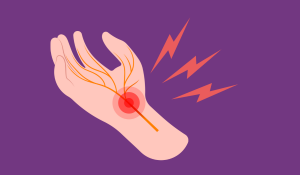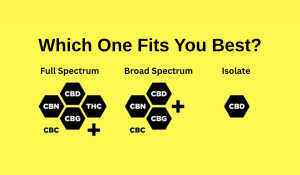Paranoid schizophrenia is a form of schizophrenia characterized by intense paranoia. Its symptoms can be interpersonally debilitating and difficult to manage. It is often treated with both counseling and medication — and when needed — hospitalization. There is some evidence that CBD can reduce psychosis associated with schizophrenia, but more research is needed to fully understand the link.
Schizophrenia tends to develop in adolescence or early adulthood, and can persist for a lifetime. What causes paranoid schizophrenia is unclear, but there are likely both genetic and environmental factors. Finding effective ways to manage the condition is essential to living with schizophrenia.
In general, paranoid schizophrenia is best treated with a combination of counseling and — if necessary — medication. Counseling with a qualified mental health professional can help calm individuals with paranoid schizophrenia, and reduce paranoid delusions. Cognitive behavioral therapy, in particular, can help individuals with the condition more effectively identify delusions.
In many cases, anti-psychotic medications may be necessary. Many medications do have strong side effects, including weight gain. For particularly severe episodes of paranoia, hospitalization is sometimes necessary.
There is compelling evidence that CBD exhibits anti-psychotic properties and may have success in helping people with schizophrenia, especially in the early stages of developing the disorder. There is some evidence of a link between the cannabinoid system and paranoid schizophrenia, suggesting CBD’s possible pathway towards mitigating aspects of the condition.
While CBD is a different substance than THC, the risk of schizophrenia in heavy cannabis use has been reasonably documented, suggesting that individuals with paranoid schizophrenia should not use cannabis to attempt to treat the condition. More generally, while the evidence for CBD’s effects on schizophrenia is fairly positive, it is important to note that the amount of research conducted thus far has been limited, and individual responses to CBD may vary.
Individuals should not use CBD to treat paranoid schizophrenia unless directed to do so by a medical professional, likely in combination with other forms of treatment.

Explore this cbd consumption methods tutorial and follow the step-by-step process to select, use, and verify the safest ways to consume CBD for wellness.
Read More
Learn what CBD edibles are, their main types, expected effects, legal status, safety factors, and how they compare to other forms of CBD.
Read More
Therapeutic Uses of CBD Managing Chronic Pain with CBD Struggling with chronic pain? CBD might help. Studies suggest it can reduce inflammation and alleviate discomfort,...
Read More
Just as CBD may help humans due to its interaction with the body’s endocannabinoid system, the same is true of dogs. CBD has the potential...
Read More
Cannabis has been used for millennia to treat numerous health conditions. Current research offers promising results on the effects of CBD oil on breast cancer.
Read More
What Is CBD for Cats? CBD (Cannabidiol) is a natural compound from hemp. It’s non-psychoactive, meaning your cat won’t get “high.” Instead, it works with...
Read More
1. Understanding Neuropathic Pain Neuropathic pain results from nerve damage or dysfunction, causing symptoms like burning, tingling, or sharp shooting pains. Common Causes: Symptoms Include:...
Read More
CBD for Pets: A Pet Parent’s Guide to Dosage We all want the best for our pets, especially when they’re struggling with pain, anxiety, or...
Read More
What Is Lupus? Lupus is a long-term autoimmune condition that can impact multiple organs, including the skin, heart, lungs, and kidneys. The most common type...
Read More
1. Full-Spectrum CBD: The All-In-One Option What it is: Contains CBD, minor cannabinoids, terpenes, flavonoids — and less than 0.3% THC. Why choose it: Promotes...
Read More